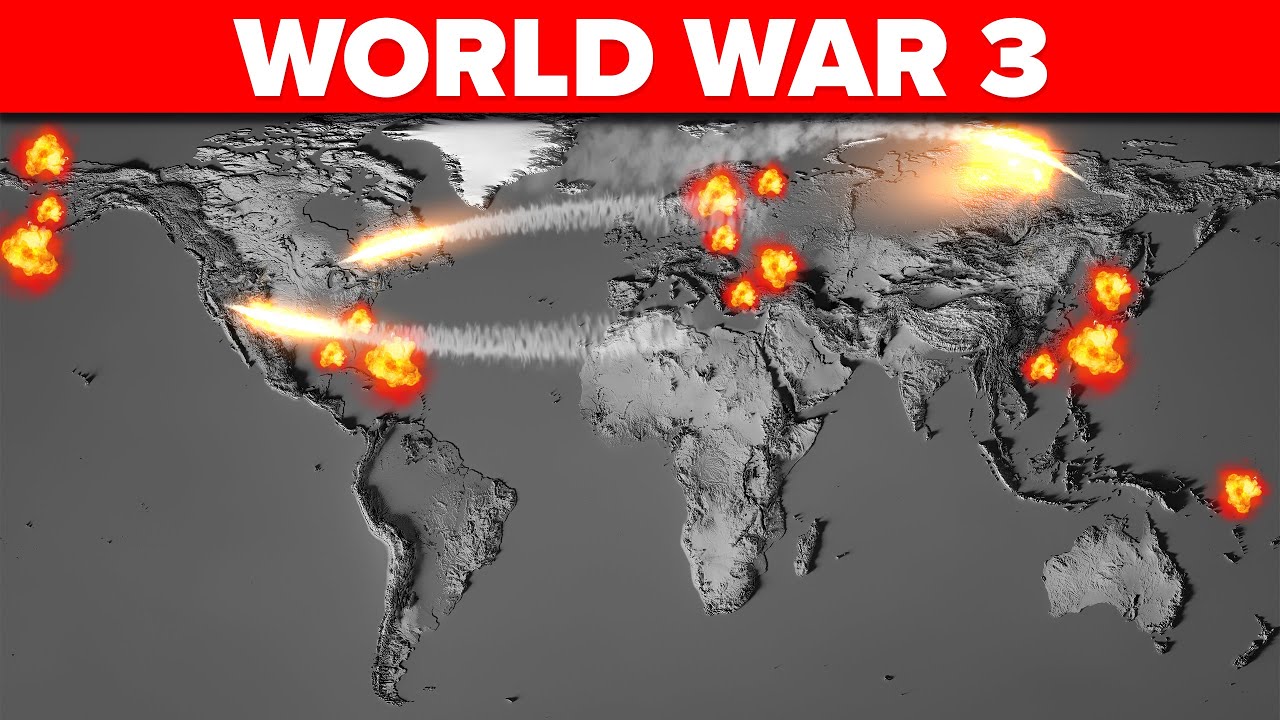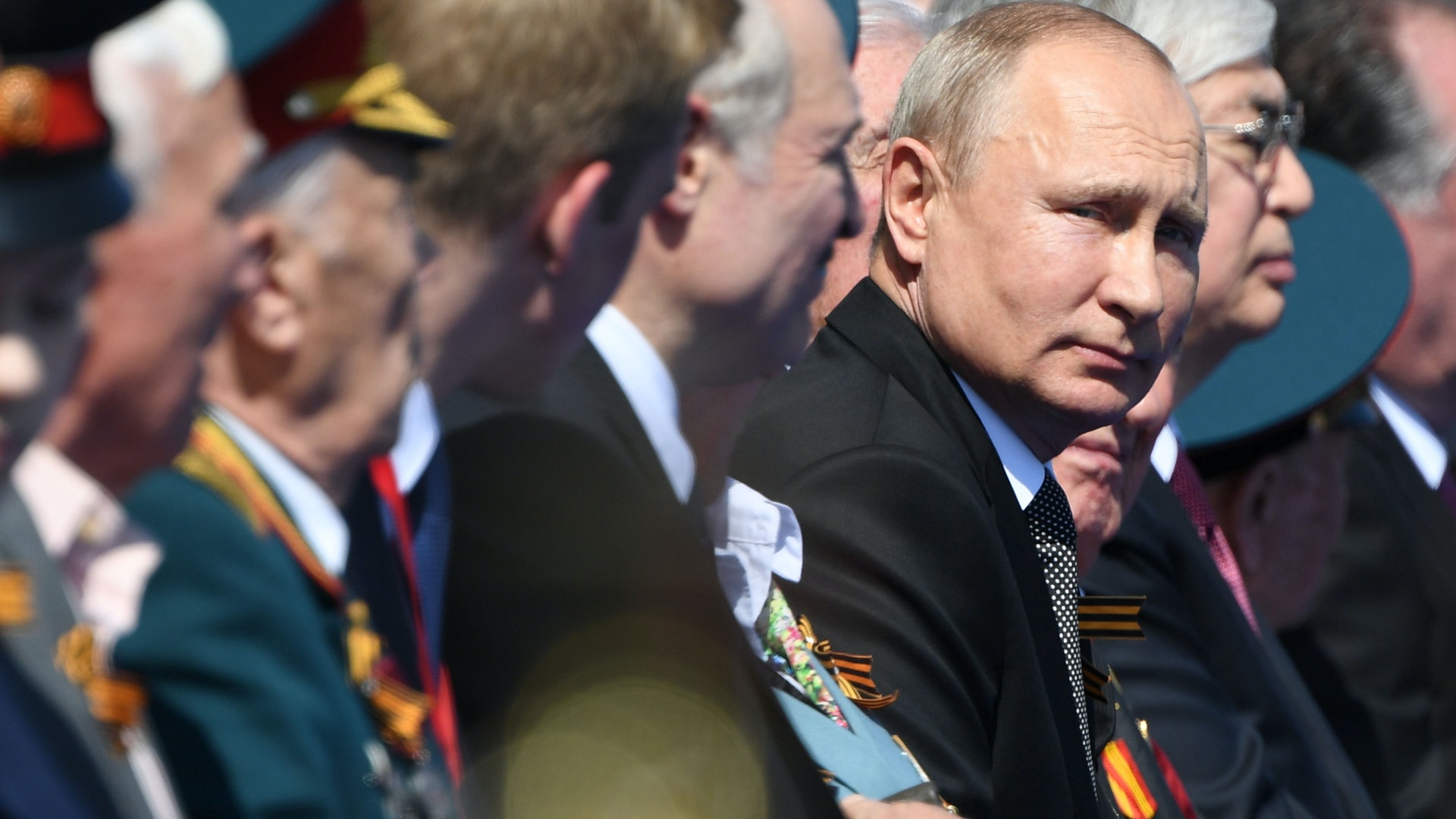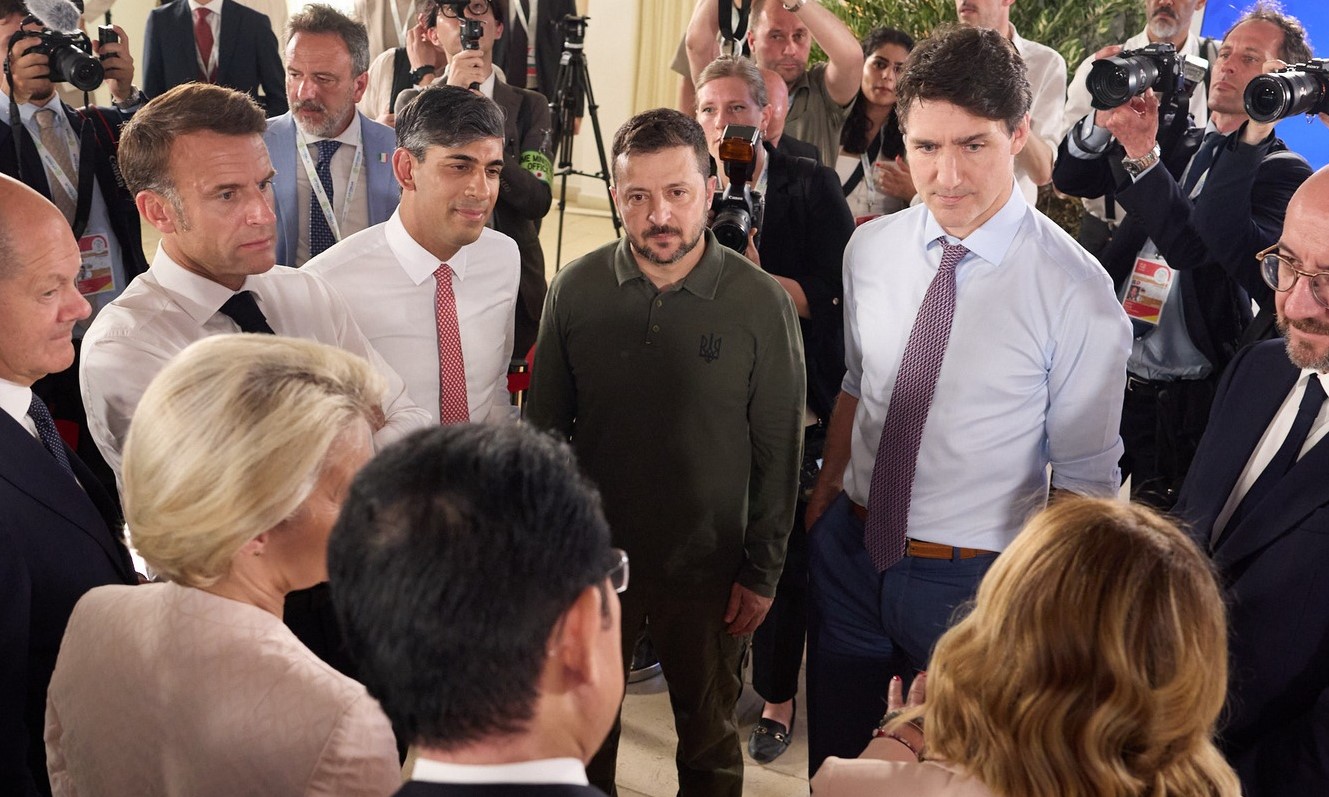
Around the end of last year and the beginning of 2024, when the Ukrainian resistance on the battlefield was in the doldrums, the German defense minister urged his countrymen and his European colleagues to get “ready for war within five years.” He warned that Russian troops could attack NATO between 2029 and 2032.
The annual Munich Security Conference took place after this warning, and Ukraine was the absolutely dominant topic. Tensions and anxieties pervaded the meetings. In impassioned speeches about aiding Ukraine, European politicians talked about “the danger of war in Europe” and proposed an unprecedented level of awareness about the need for independent defense capabilities. They all supported more military spending.
Four months later, NATO Secretary-General Jens Stoltenberg, during his farewell trip to the United States, reported to President Joe Biden that 23 of NATO’s 32 member countries had raised annual military spending to 2 percent of their respective GDP totals, and NATO’s military spending in 2024 would be 18 percent higher than it was the previous year.
Dutch Prime Minister Mark Rutte has been appointed to succeed Stoltenberg as NATO secretary-general. With the escalation of the Russia-Ukraine war and increased spillover risks, it is reasonable to ask whether Rutte will become the first NATO secretary-general to be forced to coordinate America’s European allies in their direct engagement in large-scale regional operations.
Despite any dark background about the outbreak and spillover of the Palestinian-Israeli conflict, it’s clear that it has disrupted the strategic expectations and planning of the United States and NATO, which initially thought support for Ukraine would lead to the defeat of Russia in a short time.
Meanwhile, Iran, Lebanon, Syria and other anti-American and anti-Israeli forces have been involved in the conflict in a superficial way, and most Arab countries have made their moral support for Palestine clear in statements, instead of actions. These may suggest that the war in the Middle East remains controllable. However, as the parties involved are diverse and “three-dimensional,” people can’t help thinking that a world war may be approaching.
At the sixth International Forum on Security and Strategy held by the Center for International Security and Strategy (CISS) at Tsinghua University in late March, Russian scholar Lukjanov declared the “collapse” of the post-World War II international order, arguing that with the spillover of regional conflicts, “World War III is on its way.” As the moderator of that session, I asked: “If World War III occurs, whom will be involved?” He replied that it would be between the hegemon and the rising states.
As a matter of fact, the “World War III” script has long been part of the Russian official narrative about its military operations in Ukraine. Dmitry Medvedev, deputy chairman of Russia’s Security Council, has repeatedly warned in public that the situation has reached the “final brink” and that the world will continue to “balance on the edge of World War III and a nuclear disaster.”
Global armed conflicts may well occur. With the delivery of long-delayed U.S. and European military aid to Ukraine and renewed escalation on the battlefield, Russian President Vladimir Putin has also changed his tone. He said that a direct conflict between Russia and NATO would put the planet “only one step away” from World War III. He added that the U.S. and the West want to see Russia fail and putting an end to its thousand-year history, but Russia’s defeat was impossible.
Serbian President Aleksandar Vucic, who has been struggling to balance Europe and Russia, warned in June that European leaders had underestimated Putin’s resolve and overlooked the huge price of war. He warned that World War III may break out within the next three months.
The American presidential election is picking up steam. No matter what the outcome is, the United States will enter into a very special stage in its history of domestic politics and foreign strategies. The world is anxiously waiting for one of two different possibilities to emerge, while secretly preparing for Donald Trump’s return to power and the accelerated decline of American hegemonic control.
Among the promises listed in Trump’s Agenda 47 (a reference to his being the 47th president), which was posted on his campaign website, is an impressive item titled “prevent World War III.” Trump accused President Biden of leading the United States to “the brink of World War III” and vowed to reverse every “disaster” such as “the Ukrainian proxy war” if he, Trump, is re-elected to the White House.
Trump has always opposed U.S. involvement in unnecessary wars, and he did lead America away from conflicts during his first term. This time, preventing World War III is truly a serious item on his policy agenda, not just a campaign gimmick. The Biden administration is sure that Putin does not dare not use nuclear weapons to avoid defeat. Trump totally disagrees. In fact, Russia's nuclear strategic thinking is shifting from balance of power to balance of terror. And so is the American doctrine.

Talk of a third world war has also emerged in Asia. The “Ukraine today, Taiwan tomorrow” viewpoint, which originated in Europe and Japan, has been constantly stirred up in this part of the world. The 2027 scare, which presupposes China unifying Taiwan by force, has triggered a systematic strategic and tactical discussion in the United States. Europe sees potential conflict across the Taiwan Strait as a major reason to “de-risk” from China. Such an event could trigger direct American intervention, but the war would not be confined to China and the United States. It would inevitably escalate to World War III proportions.
Then, if the China-India border disputes somehow intensify, China will be caught between Scylla and Charybdis. Matthew Pottinger, an American anti-China activist and a member of Trump’s team, is leading Trump’s Taiwan-related policy-making. Calling China the provocateur of World War III, he champions a more radical policy of strengthening military deterrence and preparing for frontal combat.
The Korean Peninsula has been full of hustle and bustle for some time. North Korea has abandoned its peaceful unification goal and continued to arm itself against South Korea. It is also supporting Russia’s war against Ukraine in exchange for military industrial breakthroughs, especially with regard to missile technology. The Russia-DPRK alliance and the U.S.-Japan-ROK alliance have thus been strengthening in parallel, leading to more visible bloc opposition in Northeast Asia. American strategic circles do not deny that World War III will break out if the North attacks the South on the peninsula.
Elsewhere in the region, the Philippines is in a dogfight with China over Ren’ai Reef in the Nansha Islands. Philippine Defense Secretary Gilberto Teodoro defended the country’s “transparent” move to publicize the maritime confrontation so the world would see a big country bullying a small one, thus avoiding a third world war in its own way. Former President Rodrigo Duterte, who opposes the current administration’s excessively pro-American policy, warned the Philippines to not play too big but to be wary of being dragged into a world war by its mutual defense treaty with the United States. The U.S. embassy in the Philippines and right-wing American media, such as Fox News, fanned the flames of President Bongbong Marcos’s adventurism and spread tales of World War III starting in the South China Sea.
The West is cultivating a world war panic in international discourse. The reality is that people generally realize that the peace dividend after World War II, especially after the end of the Cold War, is diminishing fast, and an all-out war is not far away. As an extension of the “free world versus authoritarian regimes narrative, The U.S., the Western establishment and verbal provocateurs rush to pass the buck in global security governance and conflict management to speak more loudly on the issues of war and peace.
Poland, the Baltic countries and some former Soviet bloc countries believe that if the Ukraine war spills over, they will bear the brunt and potentially face national subjugation and extinction. They have thus been warning European partners not to repeat the historical mistake of the Munich Agreement by taking it lightly or trying to appease Russia. France, Germany and Poland may — either primarily or partly — wish to awaken Europe with early warnings of a huge storm as they jostle to achieve their dream of leadership in Europe. With limited territorial depth and national strength, they can only build this influence through interactions. A new European Triangle is in the making.
To maintain its hegemonic dominance, the U.S. is struggling to advance its positions in two strategic competitions — to contain China and weaken Russia in parallel, while responding to two geopolitical crises at the same time. The world’s superpower does not need a new world war, which would not serve fundamental American interests. Otherwise, the Biden administration would not have done its utmost to avoid direct intervention in Ukraine or set up guardrails for China-U.S. relations, and Trump, whose polices are extremely conservative, would not have made the prevention of World War III an issue for his campaign.
What the U.S. needs is to label China and Russia as “sources of global chaos” and “revisionists in the international order” so it can support a narrative in which alliances in the “free world” need to stand against authoritarians. It needs to hype the reductive notions of de-risking and dependence to consolidate Western perceptions and more effectively suppress the development space of rivals and adversaries.
Russia is also a champion of the World War III panic, ultimately to intimidate forces working for its defeat. The root of its current strategic dilemma lies in its attempt to solve a problem of the 21st century by means of war. The self-proclaimed purpose of overthrowing the old international order serves more as a banner under which to rebuild its empire.
If I remember correctly, the last anxiety about world war in international public opinion appeared during the Cold War in the 1960s and 1970s. The U.S.-Soviet confrontation cast a nuclear shadow, and proxy wars were incessant. War preparations and competition were the dominant mindset among socialist bloc countries in their internal and external decision-making, leading to serious ignorance of people’s development needs and livelihoods, which also had a great impact on the end game of the Cold War. Later, more and more countries, China included, came to take the situation in, reject war mongering and focus on economic development. As a result, their economies have taken off, and developing countries as a group have risen to an extent that could shift the world landscape. Economic globalization also flourished.

G7 leaders chat before the start of 50th G7 Summit at the Borgo Egnazia resort, June 13, 2024, in Savelletri di Fasano, Italy.
It is both thought-provoking and alarming that talk of world war has become heated and part of official discourse once again after half a century. Looking around, however, it seems that no one is really making plans to start a such a war. However, in the face of complicated and fragmented security challenges, the international community seems to muddle along in ignorance. Some countries are stuck in the narrow thinking of domestic politics, geopolitics and major power competition. Being short-sighted, they constantly make bets, eager for immediate wins, and demonstrate sheer indifference to the sustainability of peace or security. This will not help solve urgent problems at present. Rather, it will only trigger new chain reactions and maximize the risk of escalation and spillover.
Although times have changed and countries’ interests are intertwined, there is still a hegemon in the world. As its old defeated rival may revive and a new rising power is poised to catch up, the hegemon, finding it impossible to outcompete others on its own, moves to copy the old Cold War strategies of isolation and bloc confrontation to stop the rising states. A hot war is always preceded by a cold one. And the deterioration of major power relations always precedes the escalation of global crises and the failure of international governance. While this does not necessarily lead to a hot war, it certainly does provide sufficient conditions for one.
“The world is once again emerging an era of great power rivalry between the U.S. and China, and the current balance of power looks something like it did prior to World War I, where neither side has much room for political concessions and any imbalance could spell disaster.”
These remarks were made to The Economist by Dr. Henry Kissinger during an eight-hour interview before his 100th birthday. Published on the magazine’s website on May 17 last year, they, were among his last words about politics. The “something” before World War I probably refers to the state of group sleepwalking by European and American politicians. In the 1910s, Europe was beset with crises, from Austria-Hungary to Serbia, from Germany to France. No one planned an epic disaster, but all wanted to seize the immediate crisis for selfish interests and finally staged a worldwide tragedy together.
There is a view that if World War III really happens, it will be mankind’s final war. First of all, it won’t be a war between major powers for land and hegemony but rather one for the survival of different civilizations. The result of that will not be available soon.
Second, it will take place on a new technical level, with fundamentally changed modes of operation and expanded battlefields. It will involve not only the most advanced nuclear, missile, aerospace and network technologies but also extensive uses of artificial intelligence. With unmanned warfare becoming a reality, the moral necessity to seek a peaceful solution ending hostilities will be greatly weakened.
Third, with unmanned aerial and surface vehicles, integrated operations, missile technologies and even nuclear technologies increasingly mastered by non-state actors — not to mention the live broadcast of war scenes — major powers are losing their absolute control over battlefield situations and their exclusive say with regard to the justice of war.
All this means that in a future world war, no one will be assured of victory, and there will be abundant cases of combatants punching above their weight or the weak defeating the strong. Any state actor may hold keys to the battlefield but not the button to end the conflict. Once the meat grinder of a global war is on, it will turn endlessly until everyone is dragged into the darkness.
If the international community allows unsafe, unjust factors to thrive in the current international situation, sits by idly as blocs form and ignores the research, development and application of technologies — either in disorder or for evil purposes instead of orderly development for the public benefit — then mankind’s final war will be neither bluffing nor sensational.
Also, the harm of trade protectionism and vicious technology competition must not be ignored. Those factors have been the economic motivating force behind world wars and are mutually causal of global economic recession, intensified international contradictions and prevalent populism.
Now the world once again sees rampant trade protectionism and high technological barriers. Even though Trump talks about preventing World War III, if he returns to power he will establish a “universal baseline tariff” on all imports, launch a new trade war targeting China and continue Biden’s tech encirclement strategy. The radical conservative and isolationist trend championed by Trump not only challenges the normal development order of economic globalization but also threatens the peace and security of mankind. It will be impossible to open up new strategic opportunities for any country, and rational people should never cheer for its return.
More than 30 years ago, Chinese leaders shook off the old line of thinking that wars were inevitable and that China must be prepared to fight a major war soon. It came to see peace and development as two major problems for the world, and then made the judgment that peace and development were the theme of the times. The focus thus shifted to economic development, reform and opening-up and integration into the world. Based on the international situation, domestic circumstances and national strength of the time, this judgment steered the Chinese world view in a different direction and represented a proactive choice.
Now that the world has enjoyed peace and development for 70-plus years, its fragility, fragmentation, unfairness and uncertainties are increasing. The issue of war and peace must come back into China’s strategic field of view. Our judgment must be down-to-earth, neither drifting with American and Western rhetoric nor overlooking factors that may reverse the trend.
Today, China has sufficient capacity to unite like-minded countries, influence the global situation and agenda and remove the sources of World War III that are being trumpeted. How to apply wisdom and make good use of such capacity has increasingly become a high diplomatic priority. It is an objective reality that the overwhelming majority of countries support peace, oppose war and demand focus on a development agenda. Even America’s allies do not support excessive securitization of their national and global agendas.
As it moves to the center of the world stage, China not only calls for peace but actively plans it. Only by so doing can it continue to focus on economic development, achieve peaceful development step by step and realize its own modernization. In this regard, it is more important — or even most important — to avoid making misjudgments or get carried away in the misjudgments of others.
